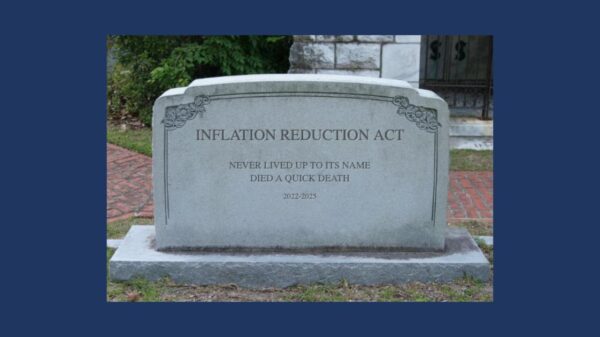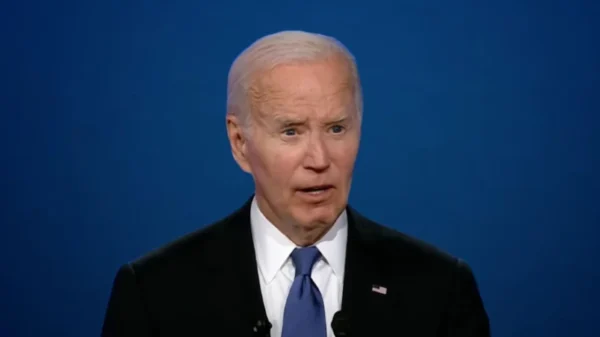Historic inflation, rising gas prices, and general dissatisfaction with the direction of the country whipped up a sour mood among the electorate that Republicans hoped would carry them to healthy congressional majorities. President Biden saw it developing. Then, he stepped aside as the GOP wave crested.
The president now watches to see if the wave will collapse and what will be left of his majorities.
Control of the House and Senate remained up for grabs this morning, a scenario that almost no Republican – and few public opinion polls – predicted. But even as results are still being tabulated across the country, this much seems certain: On the eve of his 80th birthday and with approval rating in the low 40s, Joe Biden managed to outperform both his immediate Democratic predecessors, significantly mitigating his party’s losses in the midterms.
Barack Obama saw his party lose 63 House seats and six Senate seats in 2010. Former President Clinton in 1994 lost 54 in the House and eight in the Senate. Biden has avoided anything close to either fate. The president did it, in part, by staying out of the way.
He also braced for the absolute worst. At a Chicago fundraiser Friday, Biden told donors in Illinois, where Democrats were never seriously at risk, that if Republicans won both chambers of Congress “it is going to be a horrible two years.” Even then, he added, “the good news is I’ll have a veto pen.”
He may not need it if Democrats keep control of the Senate. Races in Arizona, Georgia, and Nevada were too close to call early Wednesday morning. This was an undeniable surprise.
While many in his own party questioned his closing argument, Biden went on the stump, touting his legislative accomplishments like the Inflation Reduction Act, insisting abortion access was on the ballot, and warning that so-called “Mega-MAGA” Republicans represented an existential threat to democracy itself. But Biden didn’t go everywhere. Mostly, he campaigned in states that Democrats considered safe, like New York, or where the reward was worth the risk, like Pennsylvania.
Biden did not travel anywhere, explained White House press secretary Karine Jean-Pierre on the eve of the election, unless there “was an invite for him.” But the Scranton-born president apparently had an open-ended invitation in Pennsylvania: He went to his home state eleven times, and apparently helped Lt. Gov. John Fetterman defeat Republican Dr. Mehmet Oz in a close race. Meanwhile, Biden avoided Arizona altogether – and that strategy seemed to work as well: Democratic incumbent Sen. Mark Kelly has a 6-point lead over Donald Trump-backed challenger Blake Masters with one-third of the vote yet to be counted. Surveying early returns, an alumni of the Biden campaign called them “a huge win given the insane headwinds.”
Biden has not strayed from his agenda despite previous political setbacks, arguing that a sobering defeat in the Virginia governor’s race last year meant “we should produce for the American people.” He isn’t likely to modulate his message now, given that his party successfully staved off what some had expected to be a disaster.
“Conventional wisdom was once again wrong heading into this election,” Ben LaBolt, an assistant press secretary in the Obama White House, told RealClearPolitics. “Under President Biden’s leadership, Democrats nominated strong candidates who defied history and beat back challenges from increasingly extreme, MAGA Republicans.”
“Republicans are only going to further harm their brand by focusing on cable bait investigations instead of the issues that matter to the American people,” added LaBolt, who briefly returned to the White House earlier this year to help lead the confirmation effort of Supreme Court Justice Ketanji Brown Jackson.
Alhough control of the Houses is still too close to call, around 2:00 a.m. Wednesday Minority Leader Kevin McCarthy told supporters, “You’re up late, but when you wake up tomorrow, we will be in the majority, and Nancy Pelosi will be in the minority.” The last word from Biden came five minutes earlier.
For the most part, the White House was silent throughout the night. The president didn’t make any statements, and the administration repeatedly declined to say whether or not Biden would host the traditional post-midterms press conference. By early Wednesday morning, there was still nothing on his public schedule. But Biden was up throughout the night calling dozens of Democratic candidates to congratulate them on their wins.
Two hours after midnight, however, he hung up the phone. When John Fetterman was declared the winner in Pennsylvania, Biden skipped a call and according to the White House “sent a congratulatory text” instead.
Some Biden loyalists tried to play off the unexpected success as just part of the plan. One alum of the president’s campaign told RCP that before the election “there was deliberate lowering of expectations for sure.” Others were more frank. “God bless Rick Scott and Kevin McCarthy for telling the truth about what they wanted to do to Medicare,” another former campaign official texted RCP.
If anything, Democrats were caught off guard. David Axelrod, a former top adviser to President Obama, said as much on CNN. “This is not like a normal midterm election,” Axelrod admitted. The normal shakeup in the administration might not come as a result. Republicans, not Democrats, are the ones who spent the night agonizing over why their party failed to live up to expectations.
As it became clear that a rout was not in order, many in the GOP quietly pointed the blame at Donald Trump for clearing a path for candidates made more in his image than for success during a general election. “Everybody in the water, if you want to take on Trump,” a prominent Republican operative told RCP after Oz lost in Pennsylvania and as Masters underperformed in Arizona. “He’s never been weaker.”
The discussion among Republicans now shifts to candidate quality, and one senior GOP official was in a hurry to present a champion other than Trump: “Ron DeSantis and Lee Zeldin were the two most important candidates on the ballot Tuesday. Not because of their own races, but because they each delivered multiple House seats for Republicans. Enough seats to flip the House.”
Republicans ran up the score in the Sunshine State with DeSantis and Sen. Marco Rubio delivering double digit victories and coat tails long enough for others to ride to down-ballot wins. The GOP was not as lucky in the Keystone State, where Doug Mastriano lost by double digits to Democrat Josh Shapiro in the governor’s race.
“Candidate quality matters, but top of the ticket quality matters even more,” the official said. “House Republicans got crushed in Pennsylvania and Kansas, but thrived in New York and Florida.”
Just as it’s not clear who will control Congress, or by what margins, it isn’t obvious how Biden will adjust to the second half of his term. If Democrats did any soul-searching Tuesday night, they didn’t do it publicly. For Republicans that process started much earlier in the night.
“Definitely not a Republican wave, that is for darn sure,” Sen. Lindsey Graham said on NBC around the time it was clear Don Bolduc, the Trump-endorsed Republican in the New Hampshire Senate race, would lose. “I think we’re going to be at 51, 52 when it’s all said and done in the Senate.”
Even if Graham is wrong and Republicans only manage to take control of the House, they will still be in a position to significantly slow Biden’s legislative ambitions. For weeks GOP brass has talked openly about forcing a showdown over spending when the government must once again raise the nation’s borrowing limit. After playing defense for the last two years, they aren’t likely to go easy on the president.
“[Biden] doesn’t even have any goodwill left with Manchin,” former Trump White House chief of staff Mick Mulvaney told RCP early in the night. “Why would he still have it with Republicans?”
This article was originally published by RealClearPolitics and made available via RealClearWire.






















